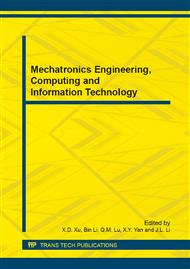p.4596
p.4601
p.4606
p.4612
p.4617
p.4622
p.4628
p.4634
p.4638
Application on Query of Distributed Database Based on Improved Genetic Algorithm
Abstract:
The query cost usually as an important criterion for a distributed database. The genetic algorithm is an adaptive probabilistic search algorithm, but the crossover and mutation probability usually keep a probability in traditional genetic algorithm. If the crossover probability keep a large value, the possibility of damage for genetic algorithm model is greater; In turn, if the crossover probability keep a small value, the search process will transform a slow processing or even stagnating. If the mutation probability keep a small value, a new individual can be reproduced difficultly; In turn, if the mutation probability keep a large value, the genetic algorithm will as a Pure random search algorithm. To solve this problem, proposed a improved genetic algorithm that multiple possibility of crossover and mutation based on k-means clustering algorithm. The experiment results indicate that the algorithm is effective.
Info:
Periodical:
Pages:
4617-4621
Citation:
Online since:
May 2014
Authors:
Price:
Сopyright:
© 2014 Trans Tech Publications Ltd. All Rights Reserved
Share:
Citation:


